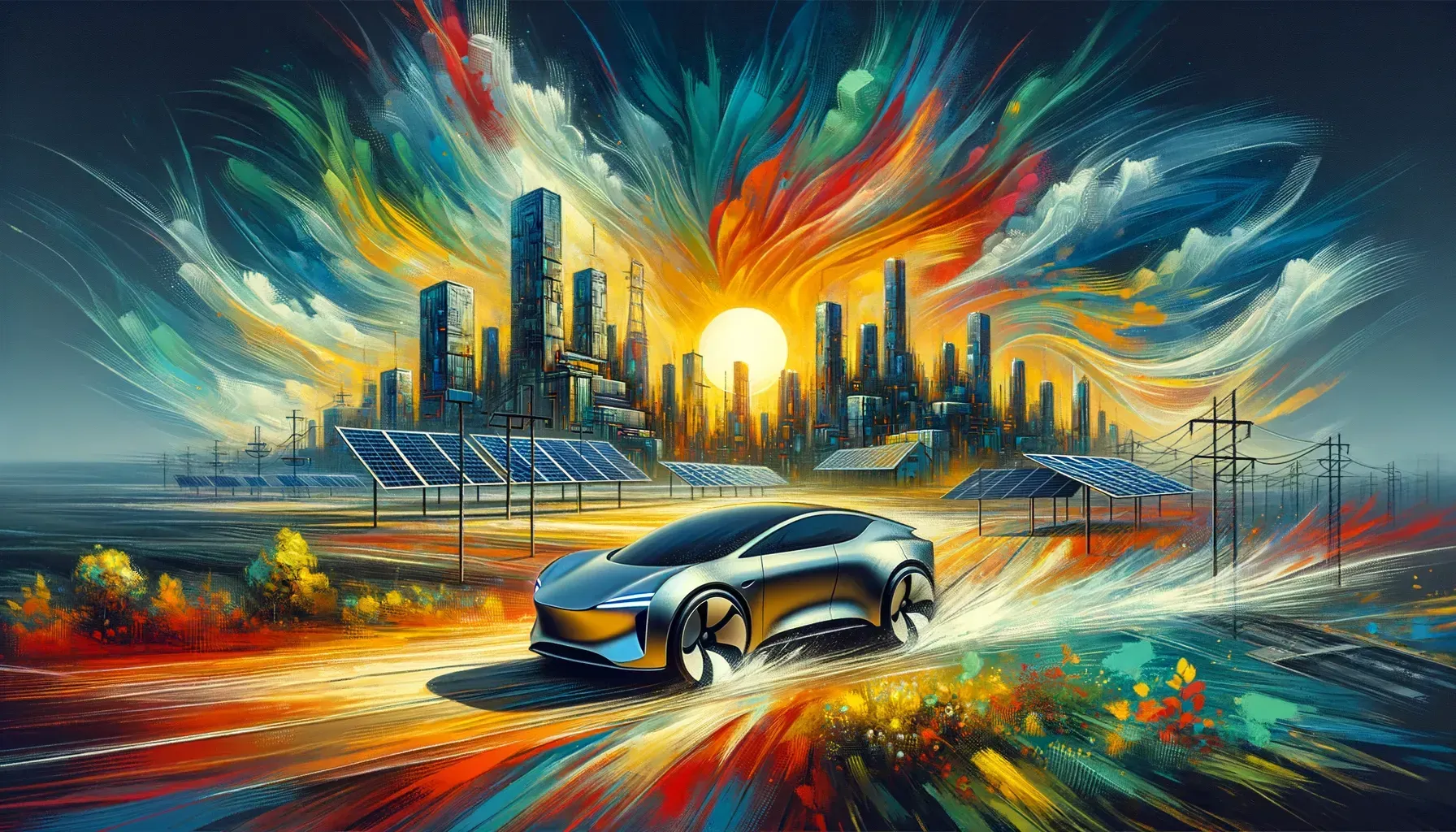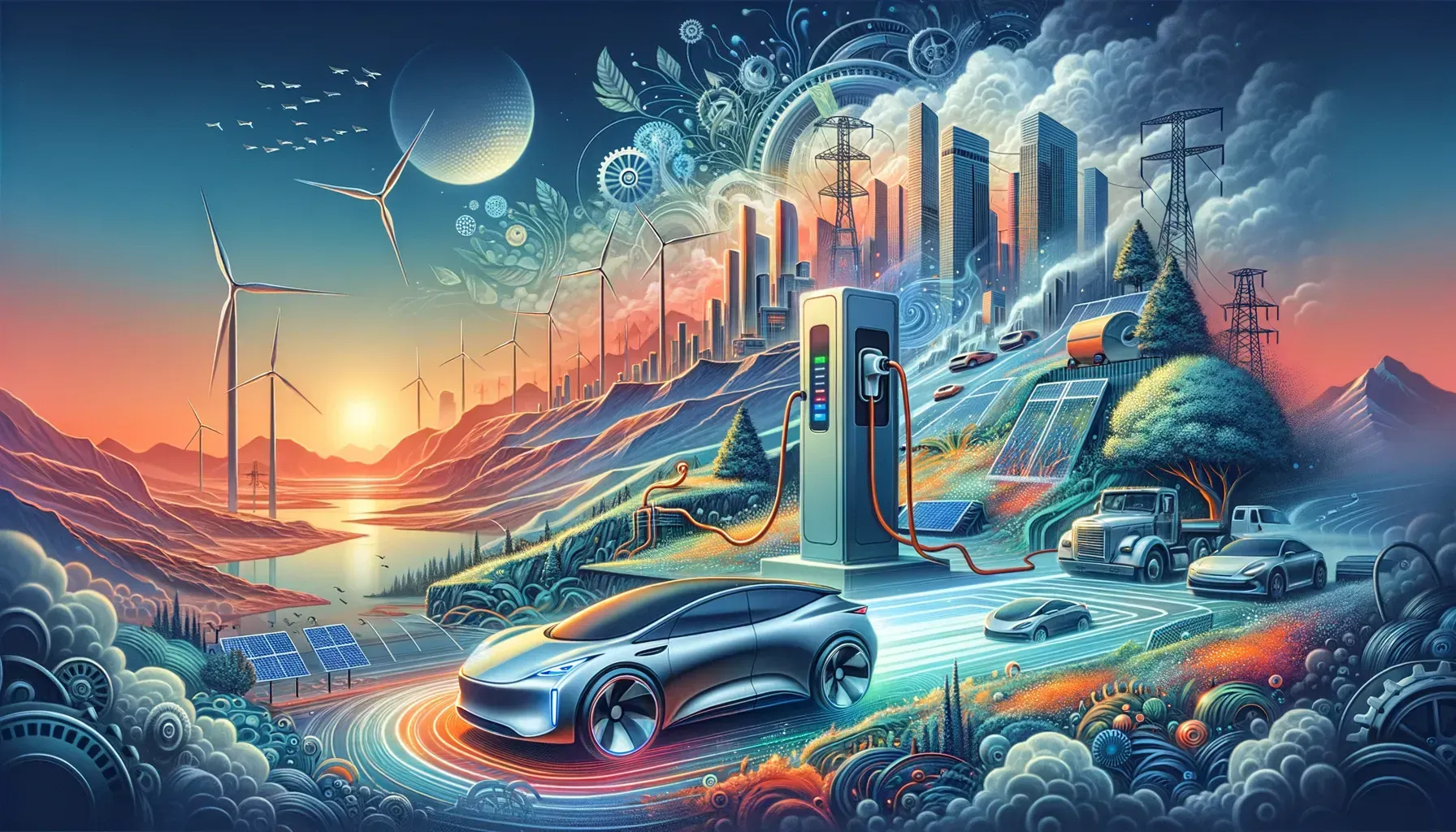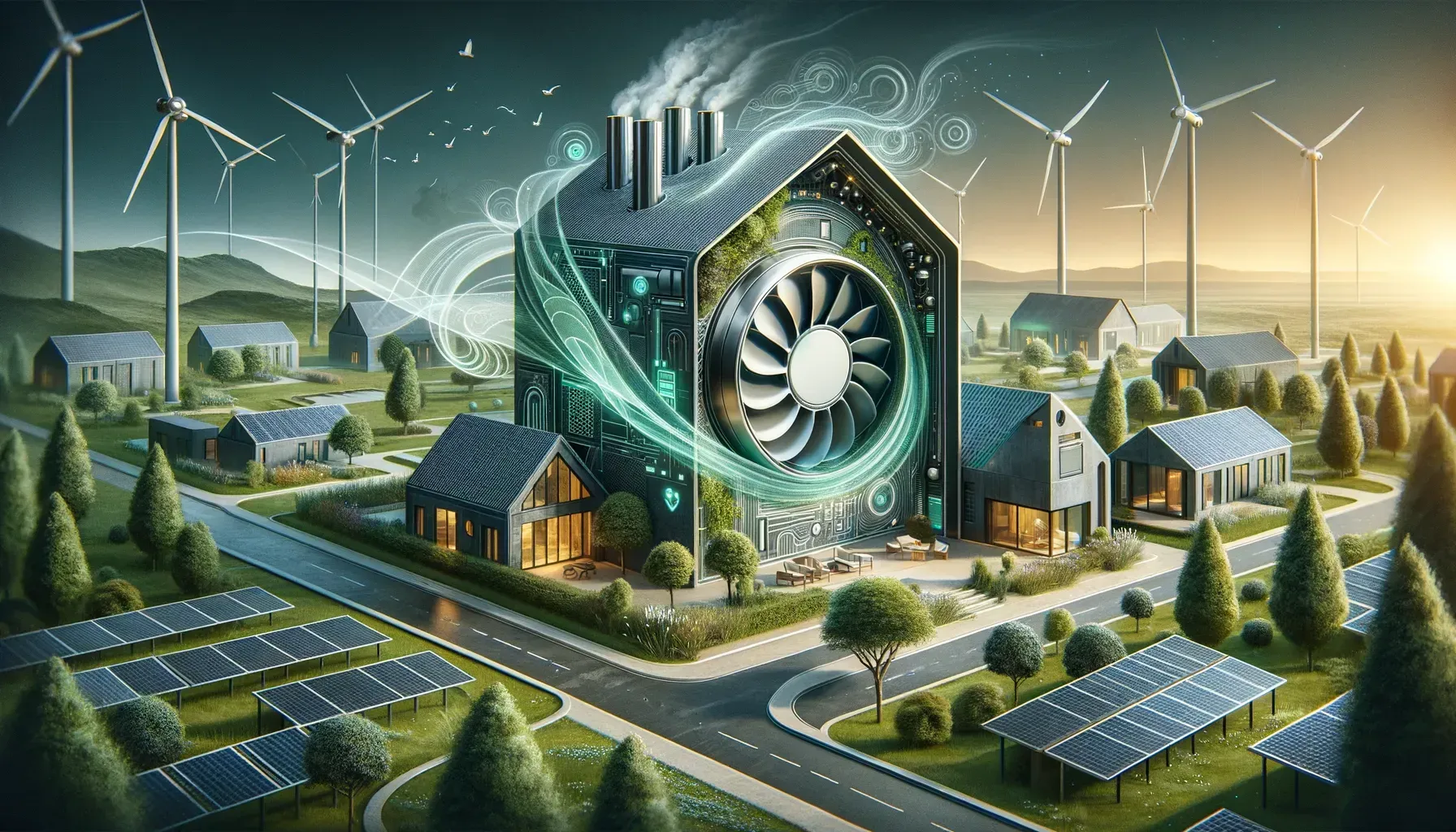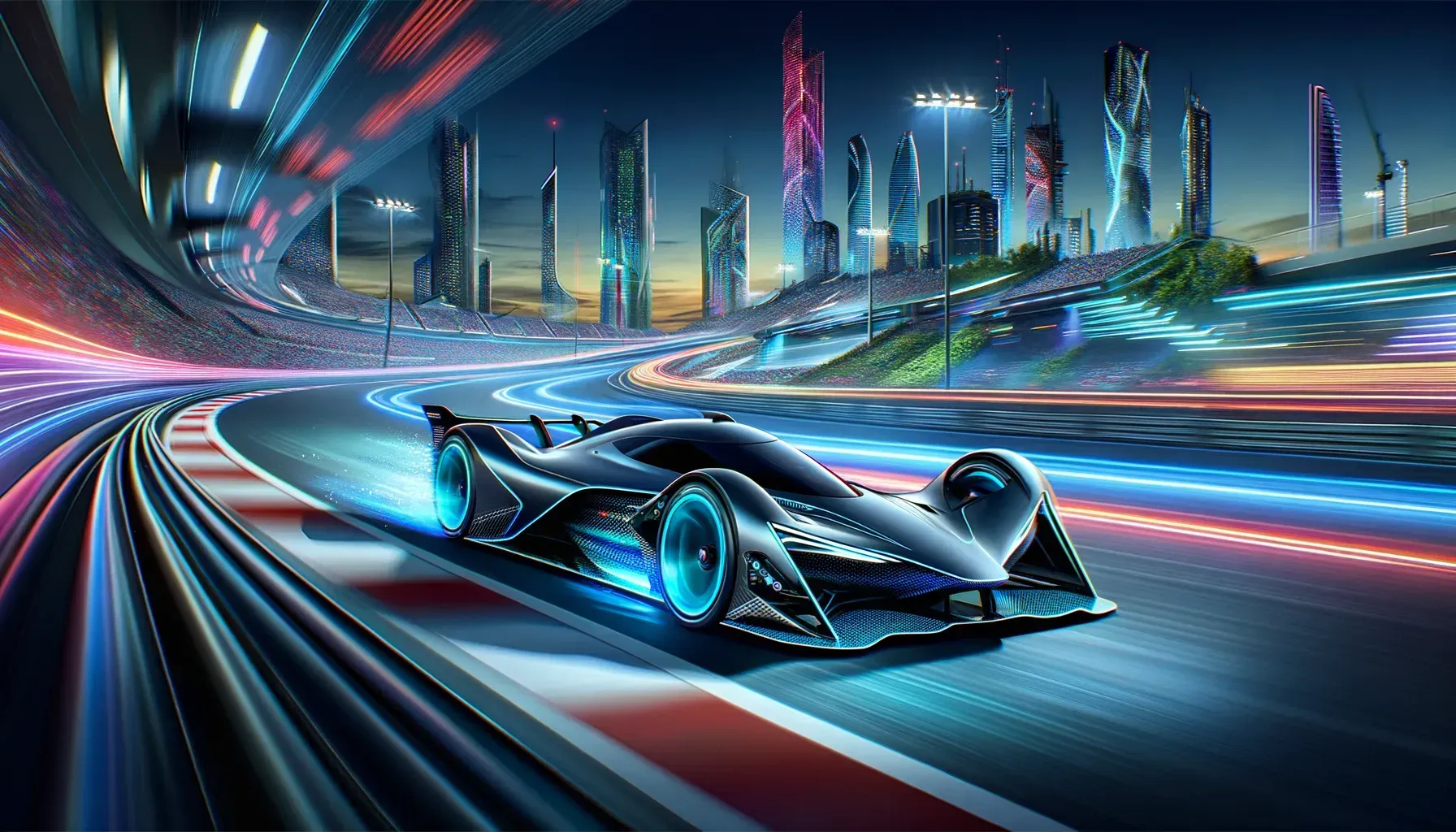Exploring GMC's Sierra EV: A New Era of Electric Pickup Trucking

Picture this: a pickup truck that blends the rugged appeal of a GMC with the revolutionary technology of electric driving. As someone who remembers the roar of engines and the smell of gasoline, transitioning to a world of electric vehicles feels surreal. Enter the GMC Sierra EV, particularly the Denali Edition 1—an environmentally friendly beast that also claims to rival traditional trucks in performance. Let’s dig deep into what this robust EV offers and how it measures up against some heavy hitters in the market.
GMC Sierra EV Denali Edition 1: Key Features and Innovations
The GMC Sierra EV Denali Edition 1 marks an exciting moment in the world of electric trucks. It was designed with luxury and innovation in mind. So, what makes it so special? Let's break down its key features.
1. Launch of the Denali Edition 1: Exclusivity at Its Finest
The Denali Edition 1 has garnered attention since its announcement. It is GMC's first electric pickup, and its limited availability adds to the allure. This model is more than just a truck; it represents GMC's shift towards sustainable driving. Only a select number of these trucks are made available. This means owning one isn't just a practical choice; it’s a statement.
2. Unique Features: Enter the CrabWalk Mode
One of the most talked-about features in the Sierra EV is the CrabWalk mode. What is CrabWalk, you ask? Imagine your truck moving diagonally, much like a crab. This feature enhances maneuverability in tight spaces. Picture yourself navigating through crowded parking lots with ease. It’s not only a neat party trick but also incredibly useful.
3. Range Capabilities: Truly Impressive
Electric vehicles often raise one big question: “How far can I go?” With a range of 440 miles, the Sierra EV Denali Edition 1 answers that question impressively. This capability makes it competitive within the electric truck market. For comparison, the Rivian R1T boasts a maximum range of 420 miles. This means drivers can travel long distances without the need for frequent recharging.
4. Aesthetic Comparisons: A Visual Delight
When it comes to looks, the Sierra EV Denali has its advantages. Its armored front design sets it apart from traditional models. Many may gravitate toward the Ford F-150 Lightning or Tesla's Cybertruck, but the Denali offers a unique aesthetic that some buyers may find appealing. It’s not just about performance; the truck's design also makes a statement.
Specifications at a Glance
| Feature | Details |
|---|---|
| Range | 440 miles |
| Price | $97,500 |
| Launch Date | 2024 |
Pricing is another important consideration. The Denali Edition 1's price tag of $97,500 positions it at the upper end of the electric truck market. While its cost aligns with GMC’s strategy of releasing premium electric vehicles, it does pose challenges in comparison to models like the Ford F-150 Lightning, which starts under $70,000.
'The Sierra EV Denali is a game changer for GMC.' - Industry Expert
As GMC continues its journey towards electrification, the Sierra EV Denali Edition 1 showcases the potential of electric pickups. It’s not just about flat-out performance; it’s also about enhancing the driving experience and providing a sense of luxury.
The GMC Sierra EV Denali Edition 1 electric pickup truck is now being delivered to customers and is available at dealerships nationwide. As this model hits the roads, many are eager to see how it performs in real-world conditions.
Pricing Strategies: Is the Denali Edition Worth It?
When you think of the GMC Sierra EV Denali Edition 1, the first thing that probably comes to mind is its price. At an eye-popping $97,500 , it certainly raises eyebrows. But how does this price stack up against its electric truck competitors? And what justifies such a high cost? Let's explore these questions.
1. Comparison of Pricing with Competing Electric Trucks
The Sierra EV Denali Edition isn’t the only player in the electric truck market. In fact, it’s in good company with other heavyweights.
| Truck Model | Starting Price |
|---|---|
| Ford F-150 Lightning | Under $70,000 |
| Chevy Silverado EV RST | $96,495 |
| Hummer EV | From $96,000 |
At just under $70,000, the Ford F-150 Lightning appears to be a budget-friendly alternative. Its ample features and performance have positioned it as a strong competitor. Meanwhile, the Chevy Silverado EV RST comes close to the Denali at $96,495 . But, the Hummer EV comes in a bit higher starting at $96,000. Still, all these options are substantially lower than the Denali Edition, raising serious questions about its value.
2. Analysis of the $97,500 Price Point
Why is the Denali Edition priced so high? GMC seems to be fortifying its luxury branding with this price tag. If they want to secure their image as a premium electric truck maker, then the price serves that purpose well. But is it worth it?
The answer depends on what features accompany that hefty price. The Denali comes with premium options, impressive performance, and luxury amenities. That includes a claimed range of 440 miles on a single charge—competitively on par with both the Silverado and Rivian R1T.
However, it’s worth mentioning that the Ford F-150 offers Apple CarPlay, an inclusivity that the Sierra EV lacks. This could sway tech-savvy consumers toward other brands. Wouldn't you agree that connectivity features are crucial in today’s digital world?
3. What Features Justify the Cost?
The Denali Edition isn’t just another truck. It boasts unique features like the diagonal-driving CrabWalk mode. This eye-catching trick, also present in the Hummer EV, is surely an appealing factor, but does it justify the price?
Furthermore, the luxurious interior and array of state-of-the-art technology are hard to overlook. Yet, for most consumers, the need for practicality often outweighs luxury. They may ask: Is the Denali Edition just a fancy option, or does it offer real value?
4. Implications of High Pricing on Consumer Choices
Pricing significantly impacts consumer decisions. A truck costing nearly $100,000 may eliminate a vast segment of the market. Shifting away from affordability can alienate potential buyers who could opt for the less expensive models.
The question becomes: who is the Denali targeting? The answer may lie in GM's broader strategy to cement its position in the luxury electric vehicle domain. Yet, with more affordable options capable of meeting daily needs, the Denali Edition risks being viewed as a mere status symbol rather than a practical vehicle.
The Denali Edition 1’s standout characteristics align with a pricing strategy focused on luxury, but is that enough to attract buyers? Only time will tell as consumers weigh their options and decide what truly matters when investing in an electric truck.
Competing in the EV Market: A Look at Rivals
The electric vehicle (EV) market has been buzzing with excitement. New players are entering, and existing brands are evolutionizing their offerings. At the forefront of this movement are models like the Rivian R1T and the Tesla Cybertruck.
1. Competing Models: Rivian R1T vs Tesla Cybertruck
Rivian R1T and Tesla Cybertruck are two significant contenders in the electric truck segment. Both brands aim to redefine what it means to drive an electric pickup. However, they approach the task quite differently.
- Rivian R1T: With a promised range of 420 miles , it stands tall in terms of performance metrics.
- Tesla Cybertruck: Its range is still to be determined , but expectations are high as Tesla has always pushed the envelope.
2. Differentiating Factors in Design and Functionality
When examining these vehicles side by side, distinct design elements come to the forefront. The Rivian R1T has a rugged and adventurous aesthetic that appeals to outdoor enthusiasts. Its unique features like the gear tunnel and built-in camp kitchen aim to cater to utility and recreation.
In contrast, the Tesla Cybertruck boasts a bold, angular design that has drawn mixed reactions. Some see it as futuristic; others find it impractical. Regardless, it offers a range of innovative functionalities, such as bullet-proof exteriors and high-tech features that Tesla is known for.
3. Consumer Perceptions of Electric Trucks
How do consumers feel about electric trucks? Are they ready to embrace this new technology? The answers vary. Some consumers are excited about sustainability. They appreciate lower emissions and the potential for long-term savings on fuel.
On the flip side, some hesitations remain. The EV market is still warming up to trucks. Many potential buyers question the durability and utility of electric pickups. Will electric pickups hold up in tough environments? Can they match the performance of traditional gas-powered trucks?
4. Long-Range Ambitions and Performance Metrics
Both Rivian and Tesla understand the importance of range. It’s a critical metric that consumers often prioritize. Here’s a snapshot of the competition:
| Model | Range |
|---|---|
| Rivian R1T | 420 miles |
| Tesla Cybertruck | TBD |
With the Rivian R1T claiming 420 miles, it sets a high bar. The Tesla Cybertruck's promise remains unfulfilled. Yet, if history teaches us anything, Tesla typically delivers impressive specs by launch. There’s a palpable intrigue about what the Cybertruck might reveal.
5. Market Share of Electric Pickups
The electric pickup market is still maturing. As more brands emerge, competition is fierce. Rivian and Tesla are at the heart of this battle, but they are not alone. Companies like Ford and GMC are rapidly advancing in this space too.
With trends leaning towards sustainability, consumer preferences are shifting. Buyers are becoming more conscious of their choices. The question now is: how will these preferences shape the future of electric pickups?
The Rivian R1T and Tesla Cybertruck lead the pack, each with unique strengths and weaknesses. Both are symbols of a changing automotive landscape that prioritizes sustainability, performance, and innovation. The EV market is indeed poised for a revolution as competition heats up.
Customer Reception and Market Hurdles
Initial Customer Feedback on the Sierra EV
As the GMC Sierra EV rolls out, initial customer responses are pouring in. Many buyers are captivated by its sleek design and impressive features. The Denali Edition 1's range claim of 440 miles on a single charge is a standout feature. But is that enough to sway traditional pickup enthusiasts?
Anecdotal reviews highlight a mixed bag of reactions. Some customers are excited about transitioning to an electric vehicle, noting the environmentally friendly aspect as a major selling point. On the flip side, others express skepticism. They find it hard to let go of the reliability associated with gas trucks.
Challenges Faced in the Transition from Traditional Gas Trucks
Transitioning to an electric vehicle, especially for pickup users, presents unique challenges. There’s a deep-seated loyalty to gas trucks that many customers have. Having relied on conventional vehicles for so long, the shift to electric feels daunting. Some key hurdles include:
- Cost: The Denali Edition 1 comes with a hefty price tag of $97,500. Compared to the more affordable Ford F-150 Lightning, starting under $70,000, is the Sierra EV a reasonable option?
- Familiarity: Many potential buyers are unfamiliar with electric vehicle technology. They wonder about charging infrastructure and battery range.
- Perception: There's a perception that electric trucks might not offer the same performance or durability as their gas counterparts.
Market Trends Affecting Electric Vehicle Adoption
Market trends are increasingly favoring electric vehicles. A push towards sustainability is driving policymakers and consumers alike to consider greener alternatives. According to recent statistics, EV adoption rates are on the rise, with a significant increase in year-over-year sales. Despite that, electric trucks, such as the Sierra EV, face a slower transition.
Why? The legacy of gas trucks runs deep, and GMC's pricing strategy may pose additional barriers. As one automotive analyst puts it,
'Pickup buyers may need convincing to switch to electric.'The shift may require not just good marketing, but a gradual confidence-building approach.
Brand Loyalty and Its Impact on Sales
Brand loyalty plays a significant role in the customer's decision-making process. Many pickup buyers are staunch advocates for specific brands, often favoring them over new entrants. For GMC, this presents a challenge. They need to maintain their loyal customer base while persuading them to embrace a new technology.
The gravitation towards the Sierra EV depends not just on the product itself, but on GMC's ability to communicate the benefits effectively. Encouraging current customers to consider an electric future means showcasing the advantages beyond just lower emissions. It’s about reinforcing trust in performance and reliability.
| Key Challenges | Details |
|---|---|
| Cost | $97,500 for Denali Edition 1, high compared to other models. |
| Familiarity | Consumers are still learning about electric vehicles. |
| Perception | Concerns about performance compared to gas trucks. |
The shift to electric vehicles is not just about selling trucks; it’s about changing perceptions and habits. GMC’s challenge lies in bridging the gap between tradition and innovation, paving the way for a new era of pickup truck ownership.
The Future of Electric Pickup Trucks: Predictions and Trends
The electric truck market is rapidly evolving. As technology advances and consumer preferences shift, the landscape of electric pickups will undergo a significant transformation. What does the future hold for these vehicles? Let's explore the trends and predictions shaping this sector.
1. Future Technology in Electric Pickups
Future electric pickups will leverage cutting-edge technologies to enhance performance and efficiency. Here are some key advancements to consider:
- Battery Innovations: New battery technologies, such as solid-state batteries, promise increased energy density and faster charging times.
- Autonomous Features: Many electric trucks are likely to incorporate advanced safety systems, with capabilities like lane-keeping and adaptive cruise control.
- Endurance and Range: The GMC Sierra EV showcases a range of 440 miles on a single charge. Future models may push this even further, meeting consumer demands for long-range capabilities.
Will these advancements be enough to convince traditional truck buyers to make the switch? Quite possibly, yes.
2. Speculative Designs and Functionalities
Imagine an electric pickup that adapts to your lifestyle. Future designs may include:
- Modular Designs: Separate compartments for tools, outdoor gear, or even camping setups. Can you picture it?
- Interactive Dashboards: With voice recognition and AI integration, drivers could customize their driving experience with ease.
- Unique Aesthetics: Bold new looks might aim to differentiate electric trucks from their gasoline counterparts.
Designers will strive to create vehicles that are not only functional but also highly desirable. After all, consumers want trucks that turn heads.
3. Impact of Government Policies
Government regulations are playing a key role in shaping the electric vehicle (EV) market. Incentives and mandates can drive the adoption of electric pickups. For instance:
- Tax Credits: Many countries offer tax incentives for purchasing EVs, making them more affordable.
- Emission Standards: Stricter emission regulations could compel manufacturers to invest more in electric technology.
- Infrastructure Development: Governments are increasingly investing in charging infrastructure, easing range anxiety for potential buyers.
As policy continues to evolve, it will significantly affect how quickly electric trucks enter the mainstream market.
4. Evolving Consumer Expectations
Today's consumers are different from those of a decade ago. They demand more than just a vehicle that gets them from point A to point B. Instead, drivers are looking for:
- Eco-Friendliness: Sustainability is now a top concern. They prefer environmentally friendly options.
- Advanced Technology: Features like connectivity and smart functions are becoming essential.
- Performance: Electric trucks must not only match but also exceed the capabilities of their gas counterparts.
Will manufacturers rise to meet these growing demands? They better, or they risk losing customers.
In Conclusion
Electric trucks are set to become increasingly common on our roads. As noted by an Automotive Futurist,
'Electric trucks will become as common as gas trucks within the next decade.'With promising technology, imaginative designs, supportive government policies, and changing consumer expectations, the electric pickup market presents numerous opportunities. Will you be ready for the electric truck revolution?
TL;DR: The future of electric pickups looks bright with advancements in technology, unique designs, supportive government policies, and evolving consumer preferences, all contributing to greater adoption in the near future.











